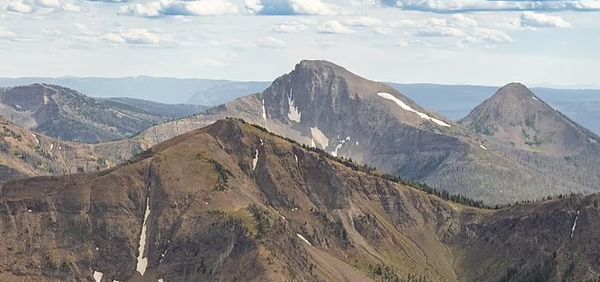Yellowstone National Park, one of the most cherished national parks in the United States, has recently given a mountain within its boundaries a new name. Mount Doane, previously named after a United States Army officer involved in a horrific massacre of Native Americans in 1870, has been renamed First Peoples Mountain.

This change comes as a result of years of protest and demands from Native American tribes in the area.
The decision to rename the mountain was made unanimously by the U.S. Board on Geographic Names, as announced by the National Park Service. For decades, Mount Doane stood as a painful reminder of the brutal attack on the Piegan Blackfeet tribe in northern Montana, which resulted in the deaths of hundreds of innocent Indigenous people. The massacre occurred in 1870, shortly after the Civil War.
The man the mountain was named after, Doane, not only led the inhumane killings but also proudly boasted about them. He even referred to the massacre as the Marias Massacre. Understandably, the Native American communities found it deeply offensive to have a landmark named after someone responsible for such violence. The Great Plains Tribal Chairman’s Association, representing Sioux tribes from Nebraska and the Dakotas, first called for a name change in 2018.
The new name, First Peoples Mountain, is seen as a long-overdue recognition of the victims of this tragic event and a way to honor the deep connection Native American tribes have with the land that is now Yellowstone National Park. Speaking on behalf of the Piikani Nation, Chief Stan Grier expressed the significance of the name change, stating, “This name change is long overdue. We all agreed on ‘First Peoples’ Mountain’ as an appropriate name to honor the victims of such inhumane acts of genocide and to also remind people of the 10,000-year-plus connection tribal peoples have to this sacred place now called Yellowstone.”
By changing the name to First Peoples Mountain, Yellowstone National Park acknowledges the centuries of history and culture that prevailed in the region long before it became a national park. It serves as a vital reminder of the atrocities committed against Native Americans and the need to confront and learn from the dark chapters of the past. This change represents a step towards healing and reconciling with the painful history associated with the park and the surrounding areas.
It is crucial to remember and acknowledge our past in order to move forward in a more positive direction. The new name not only accurately reflects the mountain’s significance but also honors the Indigenous people who have inhabited the land for thousands of years. What are your thoughts on this name change? Do you believe it was necessary to address the history and ensure a more inclusive future? Share your opinions below.





